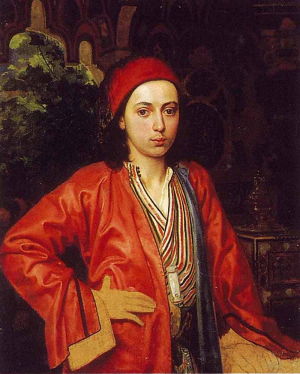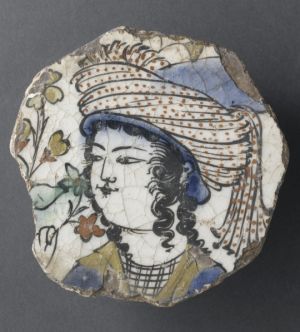(Boylove Documentary Sourcebook) - The Ideal Age for Young Male Beloveds in Ottoman Turkish Literature, and the Contemporaneous Pederastic Terminology Applied to Them, as Featured in 'Ardour-Inducing' by Sünbül-zâde Vehbî: Difference between revisions
m Dandelion moved page (BLSB) - The Ideal Age for Young Male Beloveds in Ottoman Turkish Literature, and the Contemporaneous Erotic Terminology Applied to Them, as Featured in 'Ardour-Inducing' by Sünbül-zâde Vehbî to (Boylove Documentary Sourcebook) - The Ideal Age for Young Male Beloveds in Ottoman Turkish Literature, and the Contemporaneous Pederastic Terminology Applied to Them, as Featured in 'Ardour-Inducing' by Sünbül-zâde Vehbî |
Added the page to the "Turkish literature" category |
||
| Line 60: | Line 60: | ||
[[Category:Boylove Documentary Sourcebook]] | [[Category:Boylove Documentary Sourcebook]] | ||
[[Category:Ottoman Empire]] | [[Category:Ottoman Empire]] | ||
[[Category:Turkish literature]] | |||
[[Category:Boylove in literature]] | [[Category:Boylove in literature]] | ||
[[Category:Poetry]] | [[Category:Poetry]] | ||
[[Category:Sexuality]] | [[Category:Sexuality]] | ||
[[Category:LGBT articles]] | [[Category:LGBT articles]] | ||
Latest revision as of 11:32, 22 November 2021

From "Three Genders, Two Sexualities: The Evidence of Ottoman Erotic Terminology" by İrvin Cemil Schick, in Sex and Desire in Muslim Cultures: Beyond Norms and Transgression from the Abbasids to the Present Day, edited by Aymon Kreil, Lucia Sorbera and Serena Tolino, Gender and Islam (London: I.B. Tauris, 2021). Footnotes omitted.
Note: Ardour-inducing (Şevk-engîz) is an Ottoman Turkish ribald poem by Sünbül-zâde Vehbî (d. 1224/1809), written in the form of a debate between two men on the respective merits of sexual relations with women and with boys.[1]
The ideal age for boy-beloveds was described fairly precisely by Vehbî in his Şevk-engîz:
A new moon [shaped] like his eyebrows when a child,
He becomes a full moon when he reaches his fourteenth year.
[...]
[First] a child, he becomes a beardless youth to play with;
Once his beard sprouts, playing with him goes bad.
The word emred (from the Arabic amrad), which appears in the second couplet, signifies beardless youth and is a recurring theme in Ottoman – as well as Arabic and Persian – literature.
[...]
Other terms for a boy as sex-object included civân or cüvân (from the Persian jawān = young man), gulâm (from the Arabic ghulām = young man whose moustache is jut sprouting), hîz (from the Arabic ḥîz = catamite), hûbân (from the Persian khūb = beautiful, here pl.), oğlan (from the Old Turkic oğul = boy, son), uşak (from the Early Turkish uşak = little), tâze (from the Persian tāza = fresh, new, young), puşt (from the Persian pusht = back) and vâsıla (from the Arabic wāşala = one who ‘held communion, or commerce, of love’). A selection of couplets from Vehbî’s Şevk-engîz illustrates some of these terms:
Know that the soul of the world is the young boy.
He turns the old lover into a young man.
[...]
When you get hold of such a young man,
Make sure you do not miss the opportunity of union [sex] with him.
[...]
Each was a leader in the kingdom of words;
From beginning to end, they sang the praises of boys.

References
- ↑ İrvin Cemil Shick, "Three Genders, Two Sexualities: The Evidence of Ottoman Erotic Terminology"; Aymon Kreil, Lucia Sorbera and Serena Tolino, eds., Sex and Desire in Muslim Cultures: Beyond Norms and Transgression from the Abbasids to the Present Day, part of the Gender and Islam series (London: I.B. Tauris, 2021), pp. 89 and 90.
See also
- Adult friend (dictionary)
- Age of attraction (dictionary)
- Boylove
- Ephebophilia
- Ghilman
- Loved boy (dictionary)
- Minor-attracted person (dictionary)
- Pederasty in the Middle East and Central Asia
- Pedophilia
- Situational homosexuality (dictionary)
- Sufism
- Tellak
- Young friend (dictionary)